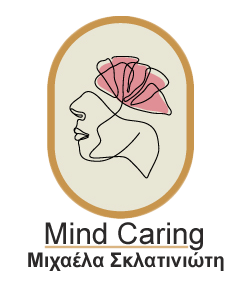The term Emotional Intelligence (EI) counts many pages of writing. Attempts to find the connecting link between "emotion" and "intelligence" had already begun since ancient times. In fact, Aristotle was one of the first who in his work "Nicomachean Ethics" gives importance and breath to the value of emotions. In particular, Goleman (1998) mentions in his book 'Emotional Intelligence' the following words of the philosopher: 'Anyone can get angry, it's very easy. But getting angry with the right person, to the right degree, at the right time, for the right reason and in the right way, this is not easy' (p.19).
Of course, there were also philosophers, such as the Stoics.
They supported the supremacy of logic over emotion and that logic is what helps people make the right decisions and avoid confrontations.
This opinion, however, did not prevail in the thinking of the other philosophers and scientists.
It is important at this point to clarify the terms "emotion" and "intelligence".
According to Bower (1981), "emotions" are internal states that organize and guide various psychological subsystems, such as the body's responses through physical symptoms or cognitive processes. In essence, the role of emotions is to convey the meaning of relational connections. Relationships that humans create either with animate beings or with inanimate objects.
Regarding the concept of "intelligence" for many years it has played a central role in research on the understanding of human behavior and captures the general level of a person's intellectual ability and concerns among other things the logical process of processing information. However, EI has been officially recognized as belonging to the "intelligence" category because it meets the following three criteria: it is conceptual, relational and developmental (Mayer, Caruso & Salovey, 2000). This means that it reflects characteristics that concern intelligence and not just behavior, includes a range of different than intellectual skills, and develops with age and experience (Brown, 1997).
Emotional Intelligence (EI) is a set of skills. These concern both the individual's relationship with himself (intrapersonal skills) and the way he communicates and behaves with other people (interpersonal skills). Since its appearance it has begun to establish itself as a particularly important feature. Mainly, for the individual's progress both academically and professionally. Also, the level of mental health and social success seems to be affected by CHD.
More specifically, there have been several studies that note its role and importance in each field. Regarding academia: EI is an important predictor of academic success (Zee, Thijs & Schakel, 2002).
In Goleman's (1998) research, it is stated that employees who seem to perform very well at work and have created friendly relationships with their colleagues are those who also have higher EI. Regarding social relationships and social success, Zee, Thijs & Schakel (2002) argue that higher levels of EI help individuals use appropriate social skills, recognize their emotions, and show warmth and adaptability in the relationships they form , showing interpersonal sensitivity.
On a broader level, there is documented research that states its relationship with health on both a physical and mental level. More specifically, it has been found that people with low EI are more likely to deviate in their behavior, smoke, use addictive substances and alcohol (Austin, 2005). Furthermore, people who cannot manage difficult situations and their own strong emotions and reactions are more likely to develop a heart condition (Salovey, 2002).
EI is linked to 'Cultural Intelligence'. Together they help the individual to understand cultural differences and adapt effectively to them. The connection of these two types of intelligence distinguishes a person on all the levels mentioned above. Also, connected to all of this is the view of Vakola, Tsaousis & Nikolaou (2004) that a person with high Emotional Intelligence is more receptive and can better deal with changes in their life, whether they are professional or personal.
But what are the elements that characterize a person with CHD?
So those who seem to be distinguished by high levels in it, in addition how they have the ability/ability to empathize. That is, to listen and understand the feelings of others. They also act with calmness and by extension maturity. They possess both patience and perseverance. It has been observed that they show more resistance in managing difficult situations. As they smoothly regulate their emotional and mental state, showing the ability to empathize with the feeling of another. At the same time, to focus on the positives of a situation, maintaining an optimistic outlook on life.
But how does an adult reach the point of being emotionally mature?
An adult manages to become emotionally mature and possess all the above characteristics because already from infancy and then childhood and adolescence, he existed and was brought up in an environment where acceptance and respect prevailed. The environment in which we grow up and through which we explore the world is important to take care of healthy socialization and the healthy creation of interpersonal relationships, so that the individual is able to enjoy emotional bonds.
At the same time, it is important to emphasize the development and formation of the individual's personal identity. Without criticism, whose only role is to mentally hurt the child. Also, there is an immense need to be cared for. Thus, the potential adult will be trained in flexible thinking and the skill of adapting to difficult social, family and personal situations. At the same time, shaping life values will help him not to have a passive personality but also to cultivate his empathy.
So what is empathy?
Empathy is about a person's ability to empathize. To understand another person's feelings. At the same time, to be able to see through the eyes of his interlocutor, leaving aside blinkers and criticisms. For example, when a friend describes and narrates a difficult situation of anxiety or fear. It is important not to go over what he tells us, arguing that maybe he is exaggerating and with time everything will pass. Instead, let's try to understand how he feels, put ourselves in his place, talk with him and analyze his feelings. To calm the fears and process step by step his difficult emotional situation, giving courage but also ways to manage and deal with it.
Of course, all this takes time, patience, a willingness to make continuous effort in order to develop and be applied at the right time and in the right way. An important tool of empathy is active listening. We train ourselves to really and effectively listen to what our interlocutor has told us. To be present not only physically but also mentally/emotionally. I listen to the other, I try to notice body movements. I try to understand every manifestation of his expression of emotion. I give space and time to capture his mental wholeness.
You have the pencil but you also have the paper. Be the creator of your own path. There, you will leave space and time. You will walk hand in hand with your interlocutor, helping both you and him. The goal is to experience the most complete outpouring of emotions.
For anything you need to ask me.
I am here to actually listen to you and walk hand in hand.
Thank you for your time,
Michaela

